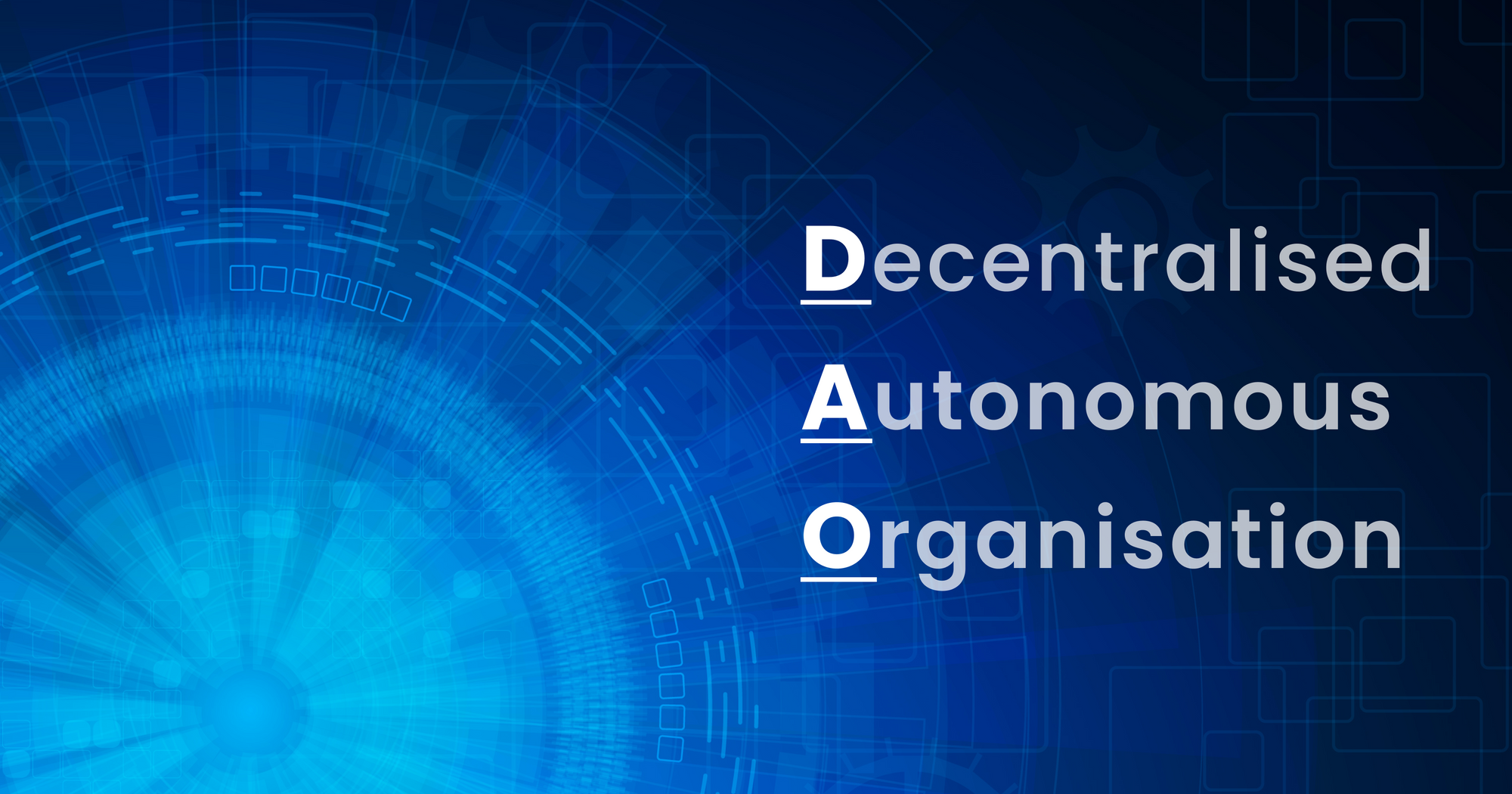A decentralised autonomous organisation, more commonly known as DAO, is an organisation that is administered without any central leadership or authority. Instead, decisions are collectively made by community members organised around a specific set of rules enforced on a blockchain. Proposals are made and put forth before the community members who exercise their vote within a specified time.
DAOs are internet-native organisations collectively owned and operated by their members. They have built-in liquidity reserves that can be accessed only with the members' approval.
One of the most distinguishing features of a DAO is the lack of hierarchy. Every member has equal representation and equal right to vote. No managers are required because the rules are part of the code, eliminating any bureaucracy or hierarchy barriers. A DAO may also be formed to fulfil various purposes, such as raising money for charity, approving venture capital fund management, etc.
Some of the younger generations and internet users of today are eager to launch social organisations to find a solution to the question of "How can we exchange values in a trusted environment?" Ethereum states that even though blockchain enables automated trusted transactions and value exchanges, internet users worldwide still desire to organise themselves in a "Safe and effective way to cooperate with like-minded people around the world."
The first fully operational DAO
Bitcoin is often regarded as the first fully operational DAO since it contains pre-programmed rules, runs independently, and is managed by a consensus system. Naturally, not all DAOs have had the same success as Bitcoin. In support of its decentralised version of Airbnb, the German startup "slock. it" introduced "The DAO" in May 2016. A crowdfunding effort that garnered more than $150 million in Ethereum at the time was a huge success.
Unfortunately, there were some problems with the code thutilisedsed in the DAO. Therefore, it was inevitable that before it could be stopped in June 2016, hackers could steal $50 million worth of Ethereum from the DAO.
The hack eroded some people's general confidence in the Ethereum token and DAOs, even though the error was in the slock. Code and not in the underlying technology.
However, the growth of decentralised Finance (DeFi) in the past years has led to a new interest in DAOs, which is why they are so popular today.
How are DAOs different from other organisational Models?
Compared to conventional corporate structures, DAOs do not have CEOs or leaders. Instead, the decisions are noted on the blockchain, which is immutable; therefore, agreements can't be altered without the entire group making a united decision.
All members of a DAO follow the rules ingrained in the smart contracts powering the DAO. This makes it impossible for any member to secretly spend money from the reserve or change the outcome of a vote.
DAOs provide a decentralised alternative to conventional management organisations. The organisational structure of DAOs is more democratic than that of established companies.
DAOs are open and visible; therefore, no one can change the rules without others noticing.
Moreover, since a DAO can be set up through a simple, smart contract, it can operate fine without the legal backing required by businesses.
Any modifications to a DAO must be approved by most members rather than being carried out by a single party (depending on the organisation's structure).
Summary
Despite its similarity with conventional business structures, DAOs are more than just an organisational concept. A DAO allows a group to generate money, exchange ideas, and create an inclusive organisation. If DAOs succeed in realising their full potential and challenge the conventional corporate structure utilised by western corporations, working for "the man" may soon become a thing of the past. With a common objective of preset results prioritising cohesiveness and creativity over shareholder profits, DAOs give investors, employees, and organisations the ability to operate within an aligned framework.
The concept of DAO also helps firms to eliminate racial, gender, and unconscious age biases to reward merit solely. DAOs thus provide participants with a much more equal environment than a typical corporation structure. Additionally, DAOs make it easier for a project to be managed by its community and to be decentralised, both of which are requirements for many Web3 organisations. Therefore, we may anticipate several future improvements and expansions on the DAO idea.





